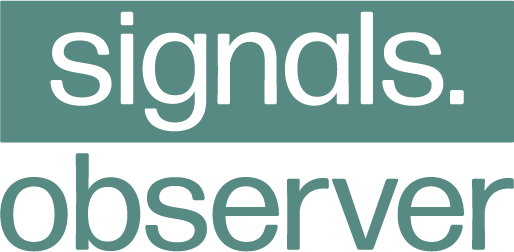- 28. April 2023
Busy as a bee: Experiences that are more valuable than money?
Who doesn’t know her, the busy worker bee? She works hard, performs countless tasks, and never sleeps. The fascinating thing about this little superhero is that she performs these tasks instinctively, without having learned them beforehand. And that’s precisely how I would describe Ali Haidar. A man behind whom lies years of sacrifice to provide a good life for himself and his family in a collapsing Lebanon.

Sali Abbas, Redakteurin

The hive: a complex building process
When the time is ripe…
Time to say goodbye to the job
The busy bee and its countless tasks
The logical consequence
Quality enhancement through technology?

People with vision
Overlooking the big sharks
Wofür steht signals.observer?
Der Mittelstand ist das Rückgrat der deutschen Wirtschaft. Entsprechend groß sind die Auswirkungen, die von den vielfältigen Veränderungen für ihn ausgehen. Das Magazin “signals.observer” erklärt diese Veränderungen, lässt Expert:innen zu Wort kommen und zeigt auf, wie andere Unternehmen dieselben Herausforderungen für sich lösen.
Dabei ist es uns wichtig, Entscheider:innen im Mittelstand eine Bühne zu bieten, auf der Ihre Anliegen, Belange und Interessen vermittelt werden.
Wir sind mittelstandsfreundlich. Innovationen machen uns neugierig. Und in Technologien sehen wir die Lösung.
Herausgeber ist das futureorg Institut – Forschung und Kommunikation für KMU mit Sitz in Dortmund/NRW.
